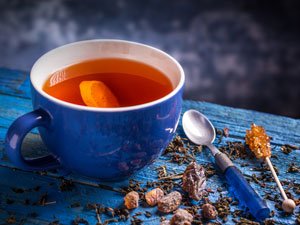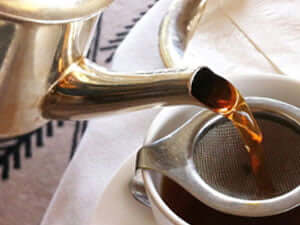
Soft Water and tea
If there’s one unifying aspect of British culture, it’s that we love our tea. There’s nothing like coming home after a long day at work and brewing a cup of the hot stuff. The interesting thing is that there’s no such thing as the perfect tea, as everyone likes to make it in their own way.
You’ll find tea traditionalists drinking your standard black tea with ‘milk no sugar’, or modernists incorporating everything from Rooibos to Oolong tea. One thing that all tea lovers can agree on is that bad-tasting water can spoil a drink in no time. There have been questions around whether soft water is good water for tea and, in many ways, that comes down to your personal preferences. Soft water is safe to drink, so is safe to use in tea, if you like it.

The effects of hard water in tea
Whether it’s black tea, herbal tea or iced tea, tea lovers will want to avoid water with a higher proportion of certain minerals, as those minerals could negatively impact the quality of the tea.
For instance, calcium hydroxide, which is present in hard water, has been known to react with the flavonoids in tea, creating a film that floats around in the cup – not exactly pleasant! Experts also advise tea drinkers to avoid using hard water to make iced tea, as the higher levels of calcium have been shown to make the tea cloudy upon cooling.
Many people also find that hard water will cause a nasty scale build-up in your kettle and your pipes over time, making them less efficient and costing you more in energy bills. You’ll also have a tougher job cleaning in general, as hard water can leave scum and limescale marks – necessitating the use of high-strength cleaning products instead of a bit of soap and water.

Why is soft water better for making tea?
Aside from the disadvantages of using hard water for brewing tea, soft water carries a lot of advantages. For instance, soft water is also a natural solvent, which means that because the limescale content is lower, the dissolution of aromatics is improved and chemical reactions are sustained for longer, leaving you with a more flavourful beverage. Soft water is far more efficient at dissolving the flavour compounds of tea, giving you more flavours more quickly – what’s not to love?
If you’re still on the fence about soft water and think that you could simply brew tea for longer in hard water, you might want to know that it’s not that simple. There are many compounds in tea and most of them will dissolve at different rates. You’ll usually see the colour emerge, before the raw strength of the tea comes through and finally the specific flavour of the tea bag of your choice.
As such, by leaving tea to brew for longer in hard water, the final product will be a poor-tasting mess that you won’t want to drink. For optimal tea blending, soft water is the better choice.
One thing to bear in mind is that soft water tends to have slightly more sodium than hard water, making the water taste very slightly more ‘salty’. While unnoticeable for many, it might seem a little strange at first and take some getting used to. The upside is that many people soon come to prefer the taste of soft water and never look back!
